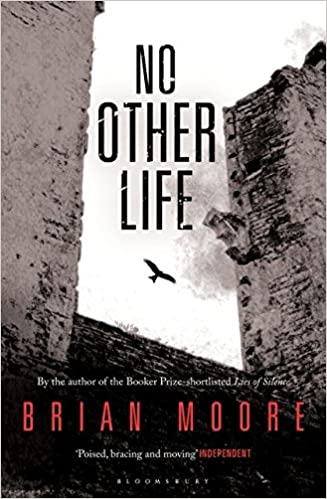Book of a Lifetime: No Other Life by Brian Moore
From The Independent archive: Stephen Smith on ‘No Other Life’ by Brian Moore

These are the days of skittish stock markets, of course, but what of the equally fickle, if lesser-known, index that tracks the popularity of dead writers? Those who follow this ghoulish bourse have noted that death often leads to a sharpish tailing-off in interest before a resurgence – though not in every case. Sentiment in Kingsley Amis is hardening, but there’s no obvious rallying around Brian Moore, the Irish-born novelist who died 10 years ago [Brian Moore died in 1999].
At one time, he was the “greatest living author”, according to Graham Greene, no doubt because Greene shared his preoccupation with Catholicism and the spiritual travails of his heroes. It doesn’t seem inappropriate to speak of Moore’s characters in this way, however, because readers turned the pages of his novels as avidly as if they were genre potboilers. Moore’s style was deceptively unvarnished. He was an unassuming writer who had the rare knack of not repeating himself. These sterling qualities almost certainly counted against him on the Footsie of literary reputation. He was capable of writing a scene with a piercing insight into religious despair that Greene himself, the doubting Catholic, would have envied.
In No Other Life, a missionary recalls his mother’s deathbed recantation. “‘Do you remember when you were a little boy and you did something bad? I would say to you, “Remember, Paul, the Man Upstairs is watching you.” I was wrong to tell you that,’ my mother said. ‘There is no one watching over us’.” It was an episode apparently drawn from Moore’s own experience. In No Other Life, the missionary rescues a boy from poverty and watches him become a revolutionary priest and the messianic president of his Caribbean homeland. By setting the narrative in a fictionalised Haiti, Moore was parking his tanks on Greeneland, or rather his bicycling priests.

Halfway through writing the novel, the Irishman remembered The Comedians and sprang to his bookshelves to reassure himself that he wasn’t transcendentally retyping Greene’s book. His own effort, which good judges consider the finer, took a lead from the story of Jean-Bertrand Aristide and his real-life progress from rags to spiritual riches. Aristide became president of Haiti in 1991 before being toppled in a coup, though he was later restored to office.
Moore struggled to complete No Other Life until he hit on the idea that his politician-priest would disappear into mythology, with the suggestion that he had a hand in his own sensational eclipse. The book was published in 1993. Aristide finally left Haiti in 2004, in circumstances that remain opaque. He insisted from exile that he was the legitimate president and that US forces had kidnapped him. Moore’s literary prescience, comparable to Greene’s prefiguring the Cuban missile crisis in Our Man in Havana, has to the best of my knowledge never been remarked on.



Join our commenting forum
Join thought-provoking conversations, follow other Independent readers and see their replies
Comments